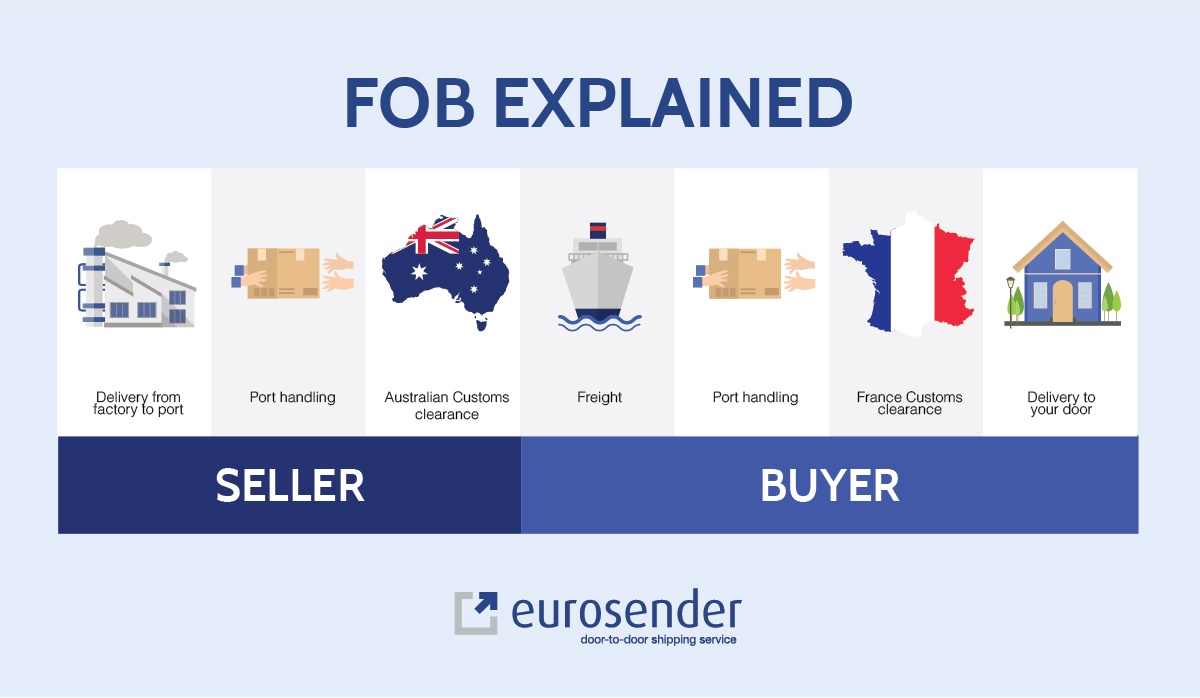When shipping cargo, especially by sea freight or inland waterways, sellers and buyers must come to an agreement on the liability and shipping charges of the goods. FOB determines at which point of the transport, obligations, charges and risks shift from the seller to the buyer during the delivery of goods.
What is Free on Board (FOB) in shipping terms?
Free on Board is an Incoterm defined by the International Chamber of Commerce, typically used in international shipping to define which party (the seller or the buyer) is liable in case the goods are damaged or destroyed during the transport. Another factor defined by FOB is which party is responsible for the shipping charges and insurance.
See more about:
Does FOB determine the ownership of the cargo?
No, FOB only determines the liability over the cargo and who’s in charge of paying the shipping charges and insurance. The ownership of the cargo is determined by other terms and documents such as the Bill of Lading.
Shipping charges and Freight on Board pricing
Under the FOB incoterm, the seller has the responsibility to assure that the goods are loaded in a vessel and delivered to the buyer. Regardless of the party responsible for paying shipping and insurance, the same costs will always apply to any shipment going under FOB:
- Transport costs from the warehouse to the port of shipment
- Loading into the vessel charges
- Freight transport costs
- Customs duties and taxes
- Unloading charges
- Insurance
- Cargo Transport to the buyer’s warehouse
- Last-mile delivery charges (if applicable)
FOB: who pays for shipping?
Depending on the FOB agreement stated on the purchase order, the above costs can be split or fully paid by one of the parties.
Read more about:
What is the difference between FOB Origin and FOB Destination?
In order to define who is responsible for the cargo’s safety and shipping charges when using FOB terms, the seller and the buyer will agree on the location where the responsibility over the goods will shift from one to the other and who is in charge of paying the freight charges.
FOB Origin or FOB Shipping Point Explained: liability and charges
When agreeing upon FOB Origin (or FOB Shipping Point) the only responsibility of the seller is to properly package the goods for transport. The buyer is hereby responsible and liable for the cargo from the collection point.
Depending on the freight charges agreement, the incoterm can vary between:
FOB Origin, Freight Prepaid: the shipping charges (as listed above) are fully paid by the seller. The buyer assumes responsibility for the goods from the point of origin.
FOB Origin, Freight Collect: the buyer pays for the shipping charges and insurance and is responsible for the cargo at the point of origin.
FOB Destination Explained: liability and charges
FOB Destination is the most advantageous incoterm for the buyer since the seller will be fully responsible for packaging, transporting, and paying for the freight charges, as listed above. The seller is also liable for the cargo until it reaches its destination.
Read more about:
FOB explained: key points
- Free on Board is one of the incoterms defined by the International Chamber of Commerce.
- It defines who is liable for goods in which part of the transport.
- When opting for FOB Origin, the buyer is liable for goods damaged or destroyed at the point of origin.
- If opting for FOB Destination, the seller is responsible for the safety of the goods at the point of origin.
- The most advantageous term for the buyer is “FOB Destination” since not only is the seller taking the risk over the goods at the collection point but it’s also their responsibility to pay for the transport charges and insurance.
Would you like to organise freight shipping and have the full support of a logistics expert? Talk to us and receive dedicated support and exclusive prices.
This article was written in collaboration with Cedric Leung.
